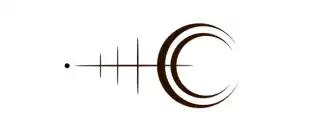I Thought I Was Going to See a Sunrise. Instead, I Witnessed Consumerism.
I thought I was going to see a sunrise. Instead, I witnessed a mirror of our times: the way consumerism and mass tourism can eclipse even the most sacred landscapes, turning what should be prayer into performance.
I recently traveled to Mount Bromo in East Java, Indonesia, while attending a family wedding. My husband wanted to share the famous Bromo sunrise view with me - one of the most iconic travel experiences in Indonesia. What I imagined would be a moment of awe and raw presence became something else entirely: a lesson in how deeply consumerism and tourism have invaded our relationship with nature.
The Ritual of Bromo Sunrise Tourism
The ritual goes like this: you wake at 2am, pile into a land cruiser, and ride up the mountain in a convoy, headlights in traffic the whole way. When you arrive, you still have a few hundred meters to the top. I chose to walk, to breathe in the mountain air - only to be pursued by motorbikes offering a lift, engines roaring, fumes filling the path. Despite my polite refusals, they continued, relentless, desperate.
At the top, instead of stillness, I was met with horror: a neon sign declaring “SUNRISE”, and crowds scrambling for the perfect selfie. Nature consumed as content. Spirit flattened into spectacle.
The worst realization? Locals cannot even come spontaneously anymore. You cannot just walk here freely. Only land cruiser tours are allowed to access the space. You must pay to witness what was once a sacred natural landscape - a living temple of earth.
The Commodification of Nature
This, to me, felt like bottled water in Indonesia. Here, you cannot drink tap water, and access to natural springs is often blocked. Water - the essence of life, the very element that makes up 70% of our bodies - has been completely commodified. Something that has cycled freely through the planet since time immemorial is now sold back to us in plastic bottles, creating waste and inequality.
As someone who tries not to contribute to plastic waste, this is devastating. But even beyond that, it is spiritually absurd.
Food, too, has been commodified. I grew up with the saying: “Money doesn’t grow on trees.” Yet this is the greatest lie. Fruits do grow on trees. Food grows abundantly. Minerals, oil, wood, coal, water - all come directly from the earth. And yet, instead of sharing these gifts ethically and sustainably, we have been convinced they belong to a few, to be bought, owned, and hoarded.
This is not survival. This is insanity.
Capitalism, Consumerism, and Survival
And yet, I want to be clear: I do not blame the local people who are doing their best to make a living within the system they were born into. I know there are still secret places in Indonesia where nature remains raw and uncommodified, where locals and land coexist more harmoniously.
What I am naming is the larger system itself - capitalism, consumerism, extraction - which convinces us that life is only valuable when it can be bought or sold.
At Bromo, it became surreal. After the sunrise viewpoint, the tour takes you to a designated photo spot with the land cruiser as backdrop. Then to Teletubby Hill, where loudspeakers blast horrific noise across the valley. You can ride horses for a picture, consume the landscape like a packaged attraction. And all I wanted was to breathe, meditate, and feel the mountain’s energy.
Instead, I was given consumption.
The Cancer of Our Times
This is the cancer of our time: when life itself is commodified. When our waters, our food, our sacred landscapes are treated as possessions rather than birthrights.
We need a new system. One that recognizes that water is free - always has been, always will be. That food is abundant. That nature is not a product but the very womb of life we belong to.
We don’t own the earth. We belong to her. And to make others and the planet suffer for greedy gain only harms ourselves - because we are not separate from the whole.
Until we remember this, we will continue chasing neon “sunrises” while missing the real one.


